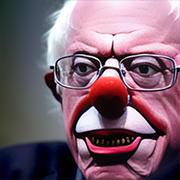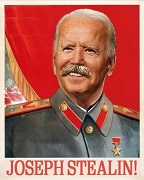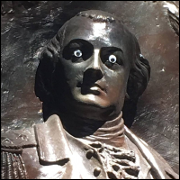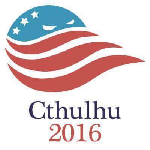|
ELECTION OF 1872 Click here to vote in the Election of 1872! Click here to vote in the Election of 1872!   Background: When Grant was elected, his reputation for scrupulous honesty and integrity led many to believe that his administration would do away with the problems and abuses that had plagued previous presidents. Though Reconstruction, industrialization, and westward expansion had escaped previous leaders, the public was ready to believe that Grant, hero of the nation, could master them. While devoted to the cause of Union, Grant’s first term revealed the very real limitations of his power. Grant’s problems began almost immediately because of his reliance on friends instead of men of talent. Though personally honest, Grant recruited old friends and military acquaintances to hold high office, convinced that their friendships meant that they were committed to the same causes as he. Unfortunately for Grant, many of these men had joined the military solely for money or had befriended Grant with the anticipation of future reward. In 1869, Wall Street manipulators used Grant’s appointees to stop the Treasury from selling gold in order to corner the price and make millions. Though Grant eventually realized what was happening, his administration’s reaction caused the entire gold market to collapse, ruining both the speculators and the American economy. In 1871, it was revealed that Grant’s personal secretaries were implicated in a corruption ring in New York City. Even the Post Office was implicated in a scandal when it was revealed that Grant’s appointed officials were paying contractors exorbitant fees for fictitious routes and low-quality services. Worse for Congress, Grant has decided to run the White House as a military office instead of a political one and has ignored the hierarchy of the civilian government. Despite being an unconfirmed official, Grant’s private secretary Orville E. Babcock has gained indirect control of whole departments, overseen the removal and replacement of entire staffs, and retains more influence than actual Cabinet officials. In 1869, Babcock, not the State Department, was sent by Grant to negotiate the annexation of Santo Domingo. These administrative failings have harmed Grant’s ability to achieve significant reforms on the issues that he cares about. Unlike his predecessor, Grant has spent the last four years advocating for federal enforcement of civil rights, regardless of race, across the South. Grant’s creation of the Justice Department to enforce federal laws in the South has created small anarchy within the Executive Branch. Further, the man he chose to head the branch, Ebenezer R. Hoar turned out to be more interested in collecting his salary than protecting African American citizens. Only after the appointment of Amos T. Akerman did the United States federal government start arresting and prosecuting the Kl Klux Klan, a newly formed organization devoted to white supremacy. Many wonder what might have been if Akerman had been Grant’s first choice, as Akerman’s vigorous prosecution has caused the organization to almost collapse. In their place, conservative armed groups have risen up, using violence and intimidation to take control of recently reconstructed state governments. The rampant corruption in Grant’s administration and the violence in the South has led to public disillusionment with many of Grant’s policies. Though Grant himself remains wildly popular, many within the Republican Party have increasingly questioned whether Grant is fit to lead. Due to this taint, several Republicans have broken off from Grant and attempted to form a third party - the Liberal Republican Party. As the name suggests, the Liberal Republicans are moderate Republicans, opposed to the corrupt Radicals in Congress, who seek liberal reforms to fight against high corruption. As their first candidate, the Liberal Republicans have nominated the eccentric businessman and newspaper editor, Horace Greeley. A staple of New York City life, many believe that Greeley’s celebrity is the only thing that can compete with Grant’s fame. Greeley eccentric beliefs, which span from phrenology to Fourierism, have left many within the new party unnerved. The Democrats, lacking a strong candidate themselves and hoping to unseat Grant, have also endorsed the Liberal Republican candidate. A handful of contrarians have rejected this decision and tried to form their own party, the “Straight-Out Democrats.” One other issue deserves mention. Over the last few decades, alcohol has become an increasingly prominent part of American political life. Though this new industry has fueled economic growth, it has also fueled countless social ills and led to rampant public drunkenness in many of America’s largest cities. Officials, up to and including President Grant, have been accused of being addicted to intoxicating beverage. The growing power of the alcohol industry and the failure of public officials to enforce existing prohibition laws on the local and state level has led prominent reformers to establish the Prohibition Party, an organization devoted to outlawing all alcohol. As one might expect, this radical group has adopted other strange and radical platforms including women’s suffrage, free and public education, and guaranteed civil rights for all peoples. Though the group does not yet have the support of other reformist groups, who see the major parties as the best chance to accomplish change, the Prohibition Party hopes that they can grow and one day save the American nation from the menace of alcohol. REPUBLICAN PARTY NOMINEES:  Presidential Nominee: Ulysses S. Grant
 Vice Presidential Nominee: Henry Wilson
LIBERAL REPUBLICAN PARTY NOMINEES:  Presidential Nominee: Horace Greeley
 Vice Presidential Nominee: Benjamin G. Brown
BOURBON DEMOCRATIC PARTY NOMINEES:  Presidential Nominee: Charles O’Conor
 Vice Presidential Nominee: John Quincy Adams, II
PROHIBITION PARTY NOMINEES:  Presidential Nominee: James Black
 Vice Presidential Nominee: John Russell
QuoProQuid has issued a correction as of 15:19 on Apr 17, 2016 |
|
|
|

|
| # ? May 9, 2024 23:35 |
|
Special Notice: In the unlikely event that a winning candidate dies during the election, I will run a special run-off election for candidates that might have picked up electoral votes in their place. I will refer you to an encyclopedia to determine who these officials might be and what a run-off might look like.
QuoProQuid has issued a correction as of 15:29 on Apr 17, 2016 |
|
|
|
I never thought I would say these words, but here you go: I voted for the prohibition party, essentially because of this:QuoProQuid posted:James Black seeks women’s suffrage and has railed against voting restrictions caused by “color, race, former social condition, sex, or nationality.” That's good enough for me. Black/Russell 1872
|
|
|
|
Adams.... no... 
|
|
|
|
I like Adams, and bourbon, but...
|
|
|
|
Thump! posted:Adams.... no... Goon: "I wish I could vote for an Adams again." *finger on the monkey's paw curls*
|
|
|
|
Between the proto-communist, the suffragists, and grant this might be the closest election we've ever had
|
|
|
|
So we have a choice between them morally upstanding and pretty cool guy Grant who unfortunately has a corrupt as gently caress administration, a proto communist with poor views towards former slaves and does not want to gently caress the South, another Adams candidate! Who is sadly the vice presidential candidate and his running mate is a confederate sympathizer, and the Prohibition Party with great views like equality and womens suffrage but... no alcohol. Man this might be the toughest election.
|
|
|
|
SpRahl posted:So we have a choice between them morally upstanding and pretty cool guy Grant who unfortunately has a corrupt as gently caress administration, a proto communist with poor views towards former slaves and does not want to gently caress the South, another Adams candidate! Who is sadly the vice presidential candidate and his running mate is a confederate sympathizer, and the Prohibition Party with great views like equality and womens suffrage but... no alcohol. I'm glad we actually have a choice again.
|
|
|
|
As an aside, there's some speculation that Greeley might have been on the autism spectrum. In his personal papers, Greeley believed that his eccentric behavior was a result of his inability to pick up social cues and often described himself as having "brain fever." Because of his obsession with facts (Greeley could allegedly list off each congressional district by county and memorized vote tallies in Congress) and social isolation, some historians have tried to diagnose him with Asperger's Syndrome.
QuoProQuid has issued a correction as of 15:56 on Apr 17, 2016 |
|
|
|
Don't forget that Grant was one of the very few people at the time whose policies towards Native Americans could be described as something other than genocidal, and he even appointed the first actual Native American to head the Bureau of Indian Affairs in 1869. Grant's presidency really is a tragedy in many ways, since he had the progressive views and the strength of conviction to be one of America's all-time greats-but unfortunately, he was let down by his utter inability to choose qualified subordinates.
|
|
|
|
There comes a time in every man's life when he must set aside hard cider for the common good. e: vvv I too am constantly second-guessing myself over the choices. After so many elections in a row where the choice was obvious, it's nice to have an actual decision to make. Pakled has issued a correction as of 16:30 on Apr 17, 2016 |
|
|
|
This is a really good election, and I am already disappointed in my decision.
|
|
|
|
Grant killed the klan and that's why I'm voting for him
|
|
|
|
Temperance? In my America? Not likely! GRANT! *Slams HARD CIDER*
|
|
|
|
Franco Potente posted:Temperance? In my America? Not likely! Wait are you the one slamming the hard cider here or is Grant?
|
|
|
|
gently caress it, Full Communism Now
|
|
|
|
i can't believe i voted against an adams i can't believe i voted against an adams to vote for the loving prohibition party
|
|
|
|
John Quincy Adams II is a traitor to the Adams name. Grant's a good guy, but he's proven that he can't handle the presidency. I don't believe in the prohibitionist's main cause, but I'm sure the amendment process will take care of that eventually. The rest of his platform is perfect. Lycus has issued a correction as of 18:04 on Apr 17, 2016 |
|
|
|
Lycus posted:John Quincy Adams II is a traitor to the Adams name. if only we'd listened to hamilton and destroyed our own party to take out adams this never would have happened* *this would happen because it happened in actual history
|
|
|
|
I was excited for a moment about the Bourbon Democrats, but apparently whiskey has nothing to do with it. Grant may have his issues, but his heart is in the right place. Reconstruction needs to happen, and blacks need to have their rights enshrined in federal protection, even if it might just be a way at getting back at the south. And even though there's all these corruption allegations, you gotta love how Grant goes against the grain of everybody else in Washington. Prohibition is such a weird issue. Back in its time it was wrapped up with all sorts of different issues, and now in the modern day, we've lost most of the context for it. I didn't know it started this early.
|
|
|
|
Dresses weird, doesn't understand social cues, is into Marx, goes back and forth on issues depending on what's convenient for the moment, and probably doesn't even believe in the party views he represents? I cannot vote for a D&D Goon for president.
|
|
|
|
Alcohol: Clearly the source of sexism, racism, privatization, and anti-immigrant nativism. Vote Prohibition!
|
|
|
|
Andorra posted:Dresses weird, doesn't understand social cues, is into Marx, goes back and forth on issues depending on what's convenient for the moment, and probably doesn't even believe in the party views he represents? I cannot vote for a D&D Goon for president. Fishmech 1884!
|
|
|
|
Will Greeley appoint Karl Marx to a cabinet post?
|
|
|
|
Note that the Prohibiton party, unlike the folks who eventually got the Prohibition amendment, are interested in a gradual shifting of American norms and laws against alcohol, not immediately banning it through out the country. Black's radical egalitarianism is separate from his detestation of alcohol- I suspect both come from his Christian faith, and hatred of barriers to equality for the impoverished.
|
|
|
|
Hm, an adams ticket bourbon party going up against suffragette prohibition party, tough call.
|
|
|
|
Equal Rights Party or bust, motherfuckers. Victoria Woodhull is an amazing woman and Frederick Douglas an equally fine man*. If they don't win, us suffragettes are going to burn this mother down. *Granted, it would've been nice if they'd told him he was nominated as VP. Lycus posted:John Quincy Adams II is a traitor to the Adams name. John Adams II is the Jeb of the family: an increasing disappointment unlikely to ever be the next member of the family to get in the White House.
|
|
|
|
yeah, this is tough, which is cool. i think i'm gonna go grant
|
|
|
|
I'm going to give myself some time to weigh the options
|
|
|
|
It's funny that Adams is on arguably the shittiest ticket
|
|
|
|
Corek posted:It's funny that Adams is on arguably the shittiest ticket It's so the Bourbons seem at least somewhat palatable. Plus, Adams doesn't want to win. He just wants to do well enough that he can pursue his dream of being Governor of Massachusetts. GSD posted:Will Greeley appoint Karl Marx to a cabinet post? http://www.americanheritage.com/content/when-karl-marx-worked-horace-greeley quote:Turning the pages to see who this most clear and vigorous German might be, readers glanced past such items as a “Grand Temperance Rally in the 13th Ward"; a Philadelphia story headlined “Cruelty of a Landlord—Brutality of a Husband”: a Boston campaign telegram announcing a Whig demonstration “in favor of Daniel Webster for President.” Then they reached a long article entitled “Revolution and Counter-Revolution,” over the by-line, Karl Marx. Horace Greeley is the reason why the Communist Manifesto was able to spread. Without Horace Greeley, there is no Das Kapital. No socialism. No Stalins, Lenins, or Trotskys. QuoProQuid has issued a correction as of 23:41 on Apr 17, 2016 |
|
|
|
lambeth posted:Equal Rights Party or bust, motherfuckers. Victoria Woodhull is an amazing woman and Frederick Douglas an equally fine man*. If they don't win, us suffragettes are going to burn this mother down. I actually tried looking up the results for that party and apparently they got so few votes it shows up as 0 in the most comprehensive source I can find. http://www.ourcampaigns.com/RaceDetail.html?RaceID=1964 She got less votes than no-name independents William Palmer, George W. Slocum, and James B. Weaver (though you'll be hearing from him soon.)
|
|
|
|
If elected, Victoria Woodhull would also have been too young to become president. According to the Wikipedia article, there was no constitutional stipulation regarding the gender of the president, but she was under the constitutional minimum age of 35 years.
|
|
|
|
Ibogaine posted:If elected, Victoria Woodhull would also have been too young to become president. According to the Wikipedia article, there was no constitutional stipulation regarding the gender of the president, but she was under the constitutional minimum age of 35 years. It will happen several times. In 1972, for example, the Socialist Workers Party will nominate thirty-one year old Linda Jenness in protest. Her candidacy will, in turn, spur a Supreme Court case upholding the right of states tokeep minor parties off the ballot. Probably not the impact Jenness hoped for when she decided to run. QuoProQuid has issued a correction as of 23:49 on Apr 17, 2016 |
|
|
|
If it makes anyone feel better, another Adams is a rising star in the Prohibition Party and will run in 1880: https://en.wikipedia.org/wiki/Henry_Adams_Thompson (He's not related)
|
|
|
|
It's even harder if you consider a hypothetical 'what would I vote in real life' where the prohibition guys are absolutely wasting your vote and you have to pick between the two republican candidates.
|
|
|
|
Mark Twain posted:
Big enough of an rear end to get my vote.
|
|
|
|
Very tough call between Greeley (Feel the Greel!) and Black. Ultimately voted for James Black because Horace's opposition of reconstruction was too tough of a pill to swallow.
|
|
|
|

|
| # ? May 9, 2024 23:35 |
|
The fact that this wasn't a race between Greeley and Black in real life is a testament is to how terrible past Americans were.
|
|
|
























